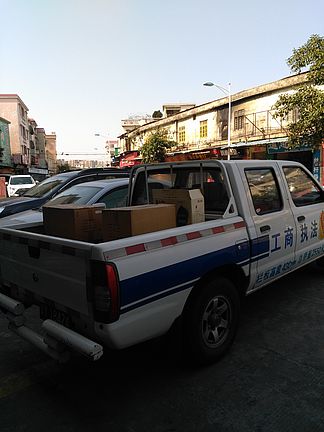Hamburg, 10 July 2017. Electro-technology specialist Pfannenberg, whose headquarters are in Germany, has joined forces with authorities in China to stop a major counterfeiting operation in its tracks. The counterfeiters not only tried to sell inferior products with the Pfannenberg logo on it, they had also filed own trademark applications for the Pfannenberg brand name in China (so-called “trademark squatting”), used these trademarks in various languages including English and Chinese, established a factory and circulated product portfolio catalogues in a blatant case of corporate identity theft. Because of legal actions by Pfannenberg, Chinese authorities have conducted raid actions, interrogated suspects, and seized and destroyed numerous counterfeit products and products on which the Pfannenberg logo was affixed.
Fake products are not a new problem in China. The country’s rapid economic growth has seen an equivalent boom in counterfeits and illegal copycat products that are damaging the world image and reputation of China. According to statistics from the World Customs Organization, about three quarters of fake products identified from 2006 to 2010 were from China. Even some agents who serve to fight against fake products are doing counterfeiting themselves.
With a commitment to safety that spans more than 60 years, Pfannenberg Group has personal experience of counterfeiting and how to fight it, and is keen to encourage others to follow their lead. It is one of several big brand German companies, whose ranks include Siemens and Bosch, to be targeted.
Pfannenberg took action when several batches of filter fans and exhaust filters bearing a copy of the Pfannenberg company logo, but of low-grade appearance and quality, were found installed at some customers’ premises. The most cursory inspection showed that these products were fakes: for example, the filter fans had plastic covers that were far too flimsy to provide adequate protection.
“Pfannenberg believes there can be no compromise when it comes to the safety of humans, machines and the environment – and we are committed to ensuring that this social responsibility extends to every country in the world,” says Nils Halm, CTO of Pfannenberg Group. “We will use everything in our power to ensure that perpetrators identified and held accountable for their actions.”
The company responded immediately, using legal partners with expertise in relevant international and local laws to stop the perpetrators. From 2016 to date, Chinese authorities conducted a number of official raids to crack down on the illegal Pfannenberg copycats. Significant quantities of counterfeits, products on which the Pfannenberg logo was affixed, and related promotional materials have been seized and destroyed as a result. In addition, Pfannenberg brought an action for an injunction against the illegal activity and those involved face heavy penalties with fines.
“Pfannenberg will continue to take appropriate action to protect our customers and our reputation and we would encourage other companies to do the same,” says Nils Halm. “We want to see increased co-operation between different organizations and relevant government departments to promote intellectual property rights, particularly in growing economies like China. Establishing a zero tolerance policy to counterfeiters will protect the interest of customers, create a healthy market environment and raise public awareness of the value of using genuine, quality products.”
Help fight the counterfeiters
More initiatives like this are urgently needed, because counterfeiting is a growing global problem. A recent report1 from BASCAP (Business Action to Stop Counterfeiting and Piracy) and INTA (International Trademark Association) estimates that the value of trade in counterfeit and pirated goods could reach $991 Billion by 2022. It also predicts net job losses of 4.2 to 5.4 million by 2022 as a direct result of counterfeiting activities displacing legitimate business.
The impacts are not just economic: counterfeiting kills people. Interpol estimates that one million people die every year as a result of taking bogus medicines2. The number of people suffering ill health or injury caused by the use of counterfeit products, and the damage caused to the environment or equipment when sub-standard components fail, is probably incalculable: but this does not mean nothing can be done to fight back.
1. The economic impacts of counterfeiting and piracy. Frontier Economics for BASCAP (Business Action to Stop Counterfeiting and Piracy) and INTA (International Trademark Association) 2017. Link to Report
2. Interpol (2013)

